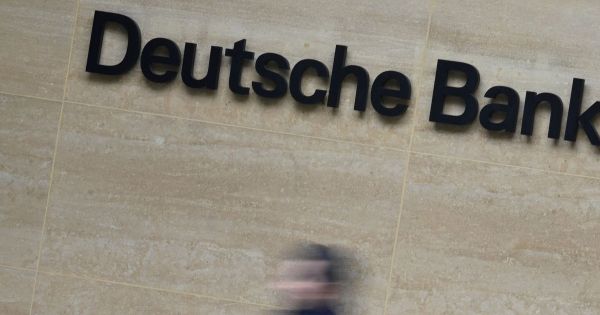German Chancellor says “no reason to be concerned about Deutsche Bank”, system is stable and resilient — MercoPress

German Chancellor says no reason to be concerned about Deutsche Bank, system is stable and resilient

Asked about the situation of the financial markets, chancellor Scholz said that the EU had been making the right decisions for years by imposing clear rules.
German Chancellor Olaf Scholz said during an EU summit last Friday in Brussels that Europe’s banking system is stable and solid. The leaders of the Eurozone countries met with the head of the European Central Bank, ECB, Christine Lagarde, to discuss the potential fallsou of several major banks collapsing in the US and Switzerland.
Inflation, which rose to troubling highs following high government spending during the coronavirus pandemic as well as the Russian invasion of Ukraine, was high on the agenda.
The ECB president said that banks in the Eurozone, which includes 20 EU countries sharing the euro currency — are safe. She also faced questions over the ECB’s interest rate hikes, introduced to curb soaring inflation.
Asked about the situation of the financial markets, chancellor Scholz said that the EU had been making the right decisions for years by imposing clear rules.
It paid off that we had strict rules and regulations in the past years, the banking system is stable in Europe, he said.
Scholz said that it was the joint task of the bloc’s member states to fight inflation. The chancellor also said there was no reason to be concerned over Deutsche Bank, Germany’s largest lender.
Deutsche Bank has modernized and organized the way it works. It’s a very profitable bank. There is no reason to be concerned, he said.
Scholz’s remarks came as shares of Deutsche Bank fell as much as 14% at one point in Frankfurt las Friday..
Meanwhile ECB chief Lagarde told EU leaders that the eurozone’s banking system is resilient. The euro area banking sector is resilient because it has strong capital and liquidity positions, an official quoted Lagarde as saying,
French President Emmanuel Macron said that Europe’s banks had strong foundations and blamed speculators for the recent drop in the value of banks on stock exchanges.
Jacob Funk Kirkegaard, senior fellow at the German Marshall Fund of the United States (GMF) in Brussels insisted the European economy was not on the cusp of a major financial crisis, adding that what happened in 2008 had been very different.
The banking crisis which began with issues in the Silicon Valley Bank were somewhat idiosyncratic to banks in the United States, and also basically a supervisory failure by the Federal Reserve. And the issues in Credit Suisse are something markets have known for a long time, he said.
When Silicon Valley Bank collapsed, markets were already able to estimate whether rising interest rates would impact banks elsewhere buying government bonds. This was not the case in 2008, he added.
But Kirkegaard highlighted that since banks are interconnected, concerns are valid. He believed this was the reason why the US government decided to act so forcefully when guaranteeing the safety of all deposits in the Silicon Valley Bank.
Within the EU, to secure banks further, momentum is needed in completing the European banking union plan, he added.





